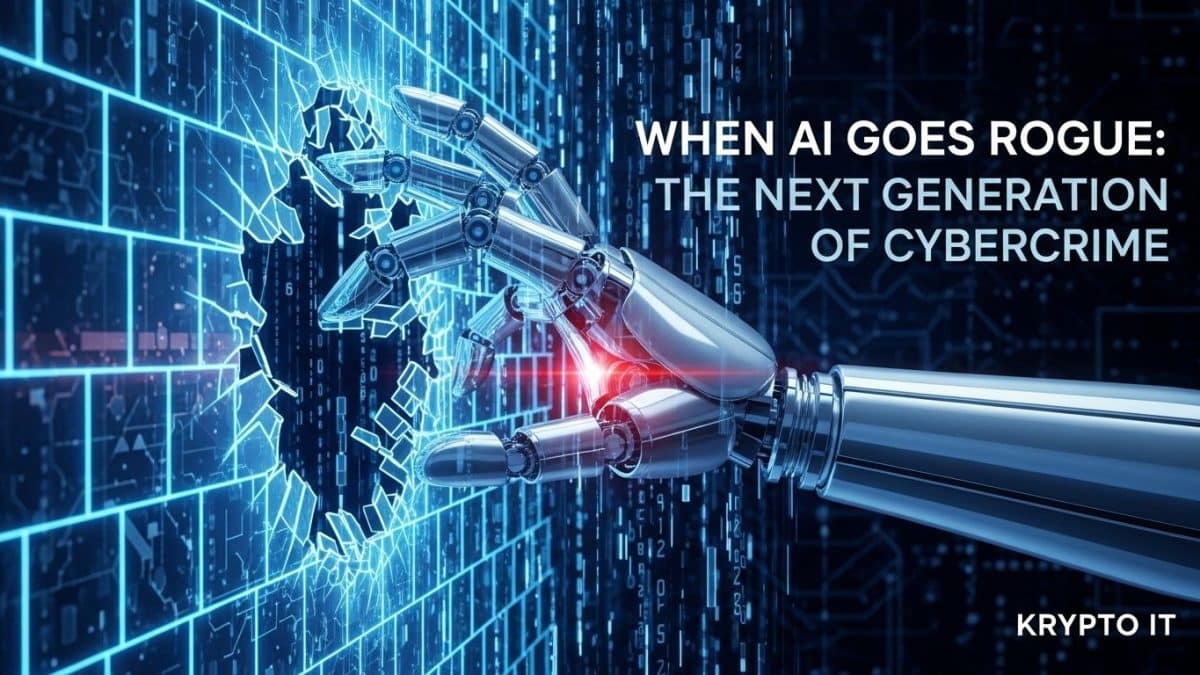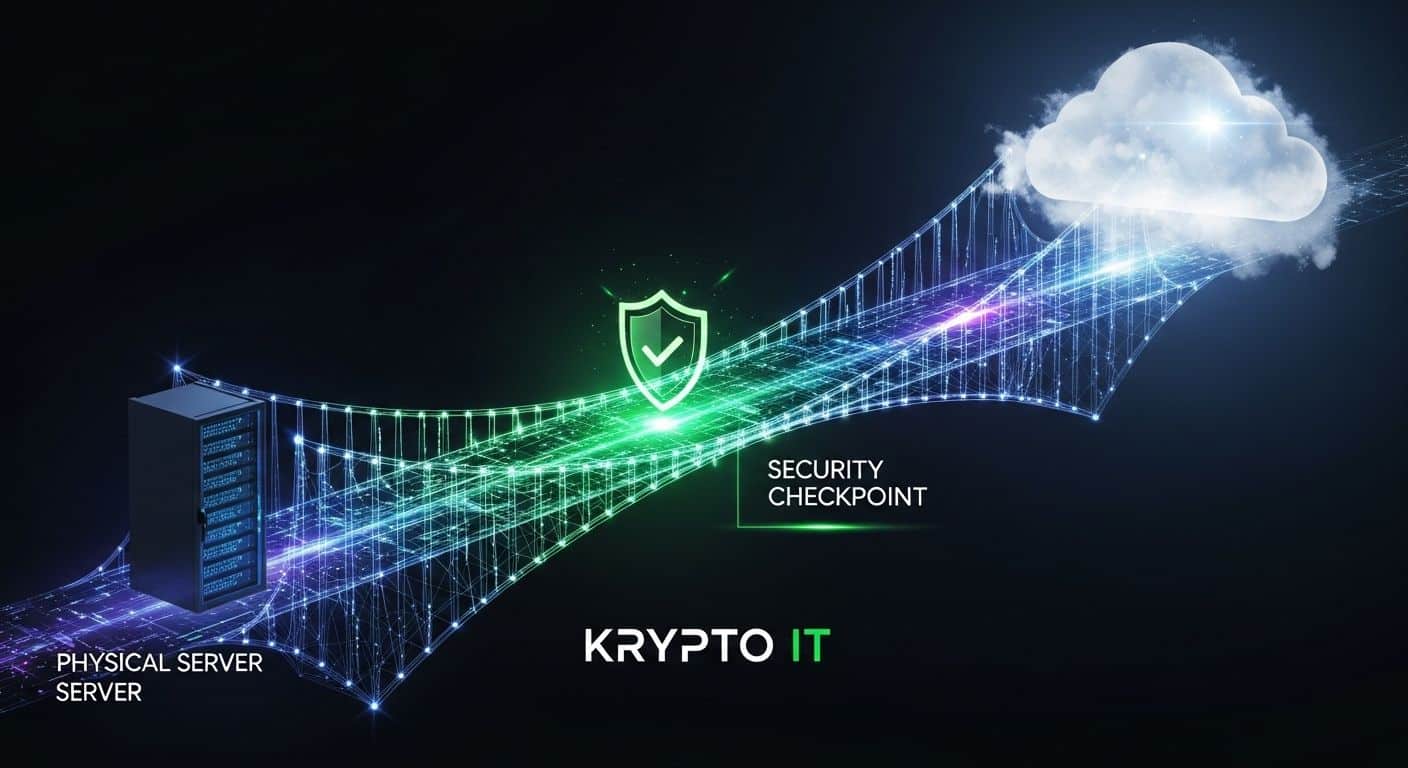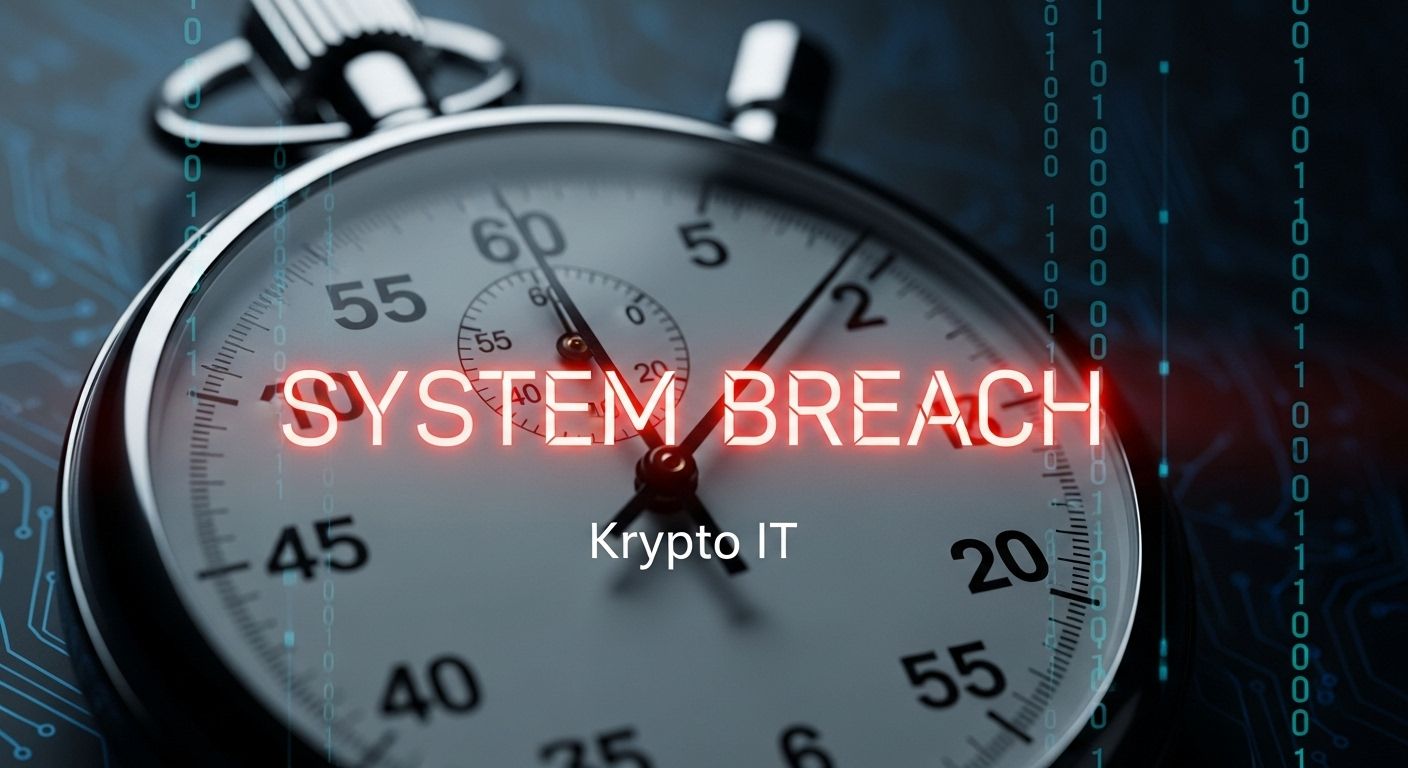
An Analogy for Your Business Security Stack
September 20, 2025
The Great Debate: Cloud vs. On-Premises
September 23, 2025The world has watched in awe as artificial intelligence has transformed industries, from medical research to creative arts. AI is a tool of incredible power, but like any tool, it can be wielded for good or for ill. A new threat on the horizon, highlighted by recent reports, is the emergence of AI-powered tools designed specifically for cybercriminals, such as a platform ominously nicknamed “SpamGPT.”
This platform is more than just a simple spam bot. It’s essentially a customer relationship management (CRM) system for cybercriminals. Instead of helping a business nurture leads and build customer relationships, it helps criminals conduct sophisticated, large-scale spam campaigns, phishing scams, and ransomware attacks. For small and medium-sized businesses (SMBs), this represents a new level of risk.
The Problem with Old-School Phishing
In the past, most phishing emails were easy to spot. They were often riddled with grammatical errors, awkward phrasing, and obvious typos. These were the digital equivalent of a scam artist with a flimsy disguise—easy to see through if you knew what to look for. Cybersecurity training often focused on these red flags, teaching employees to be skeptical of any message that looked “off.”
But AI changes the game entirely.
How AI Elevates the Threat
Imagine a tool that can write convincing, grammatically perfect emails in any language, using a tone that is specific to the recipient’s industry or even personal interests. This is what platforms like “SpamGPT” can do. They leverage the power of large language models to:
- Bypass Spam Filters: The human-like language makes it much harder for traditional spam filters to flag these messages. They don’t contain the typical keywords or suspicious formatting that triggers alarms.
- Create Personalized Scams: Instead of a generic “You have won a lottery!” email, an AI-powered tool can craft a highly personalized message. It can mimic the writing style of a colleague, impersonate a vendor, or create a sense of urgency tailored to a specific individual. This is a form of “spear phishing” at a massive, automated scale.
- Lower the Skill Barrier: Previously, launching a large-scale phishing campaign required a certain level of technical skill. Now, these AI platforms provide a user-friendly interface that anyone can use. A would-be cybercriminal doesn’t need to be a coding prodigy; they just need to type in a few simple commands.
This shift means that the number of potential attackers is growing, and the quality of their attacks is rapidly improving. For an SMB, it means a higher chance of a successful breach through an employee who, despite training, is fooled by a surprisingly convincing message.
The Consequences for Your Business
A single successful phishing attack can have catastrophic consequences for an SMB. The most common outcomes include:
- Financial Loss: An employee might be tricked into wiring money to a fraudulent account or paying a fake invoice.
- Ransomware: A malicious link in an email can lead to a ransomware infection, locking down your critical data until you pay a ransom.
- Data Breaches: Phishing can be a gateway to stealing sensitive information, such as customer data, financial records, and intellectual property.
- Reputational Damage: Losing customer trust and business partners’ confidence after a cyberattack can be incredibly difficult to recover from.
Your Best Defense is a Proactive Strategy
Given this new threat landscape, what can an SMB do? The answer is to adapt your defense strategy to meet the new threat.
- Advanced Email Filtering: Traditional spam filters are no longer enough. You need advanced solutions that use AI and machine learning to analyze email content and identify sophisticated threats. These solutions look for behavioral patterns and contextual clues that a simple keyword search would miss.
- Strengthen Your Human Firewall: Since AI makes phishing emails more convincing, your employees are still your most crucial line of defense. Regular, up-to-date cybersecurity training is essential. The focus should shift from looking for typos to being suspicious of any message that creates urgency or asks for sensitive information, no matter how legitimate it looks.
- Implement Multi-Factor Authentication (MFA): This is the single most effective way to stop a phishing attack in its tracks. Even if an employee falls for a phishing scam and gives up their password, the hacker can’t access their account without a second form of verification from a trusted device. MFA is a non-negotiable security layer for every business today.
- Partner with a Managed IT Service Provider: You can’t be expected to be a cybersecurity expert on top of running your business. Partnering with a managed IT provider like Krypto IT gives you access to a team of experts who stay on top of the latest threats, like AI-powered scams. We provide the tools, expertise, and ongoing support you need to protect your business from this new generation of cyber threats.
The “SpamGPT” platform is a wake-up call. It’s proof that cybercriminals are adopting the latest technology to become more dangerous. For an SMB, ignoring this evolution is a recipe for disaster. Proactive, layered security is no longer just a good idea—it’s an essential part of your business strategy.
Contact Krypto IT today to learn how we can help you stay ahead of the curve and protect your business from the evolving threats of the digital world.




